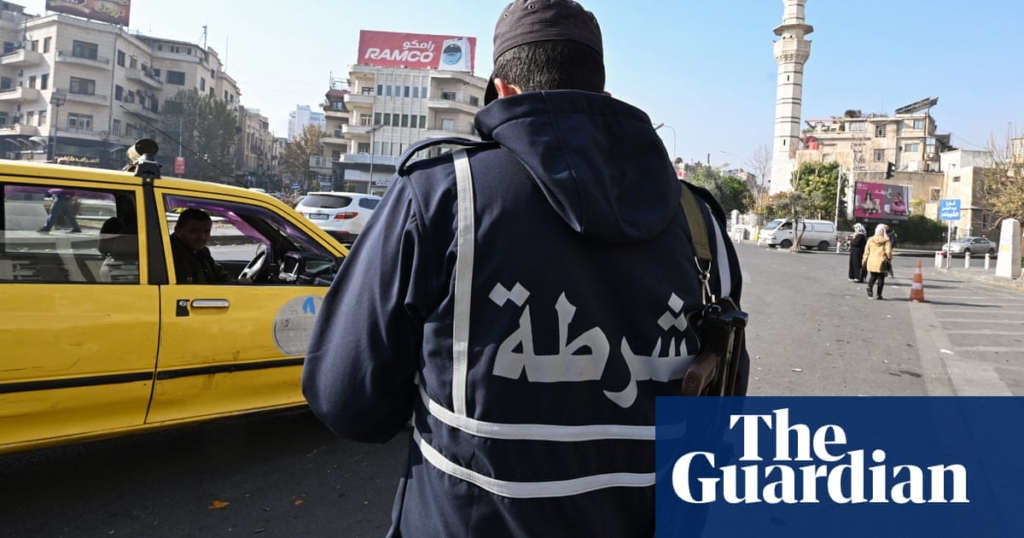Bu içerikte, Birleşmiş Milletler’in Suriye’deki isyancı grup olan Hayat Tahrir al-Sham’ı terör listesinden çıkarabileceği belirtiliyor. Ancak grup, gerçek anlamda kapsayıcı bir geçiş hükümeti oluşturma testini geçmelidir. BM’nin Suriye Özel Temsilcisi Geir Pedersen, Suriye’nin karmaşık durumu hakkında bilgi verirken İsrail’in Suriye’ye yönelik saldırılarını durdurması gerektiğini vurguluyor. Ayrıca, Suriye’nin gelecekteki terörist statüsü konusunda açıklamalarda bulunuyor ve ülkedeki çeşitli grupların temsil edilmesini sağlayacak geçiş hükümetine odaklanılması gerektiğini belirtiyor.
[ad 1]
Kaynak: www.theguardian.com
The UN would consider taking the Syrian rebel group that toppled the regime of Bashar al-Assad off its designated terrorist list if it passes the key test of forming a truly inclusive transitional government, according to a senior official at the world body.
Geir Pedersen, UN special envoy for Syria, held out the prospect of removing Hayat Tahrir al-Sham (HTS) from the organisation’s list of proscribed terrorist groups. But he said the group could not seek to govern Syria in the way that it had governed Idlib, the northern province where it was based and from where it led the military breakout that resulted in the sudden collapse of the Assad regime.
At a briefing in Geneva, Pedersen also said Syria remained at a crossroads and that the situation was extremely fluid.
He urged Israel to cease its land and aerial attacks inside Syria immediately, saying the development was very troubling. “The bombardment needs to stop,” he said. He added that Israel’s actions around the Golan Heights represented a violation of the disengagement agreement signed with the UN in 1974.
Pedersen had briefed the UN security council in a closed session on Monday, telling it that initial signs from the armed groups in Damascus were encouraging in that they were co-operating and eager to protect existing state institutions.
Addressing the issue of the future terrorist status of HTS, he said it was undeniable that UN resolution 2254 designated the precursor to HTS – the al-Nusra Front – as a terrorist organisation. “It is a complicating factor for all of us”, he said.
“We have to be honest and look at the facts. It has been nine years since that resolution was adopted and the reality so far is that HTS and other armed groups have been sending good messages to the Syrian people of unity and inclusiveness. In Hama and Aleppo there have been reassuring things on the ground.”
He said there was no doubt that HTS was an Islamist group based in Idlib province, adding: “My message is Syria cannot be run like Idlib.” He also said that HTR had itself discussed dismantling the organisation, and reforming as group overtly opposed to international terror, a means whereby the terrorist designation issue could be bypassed.
At his Geneva briefing, Pedersen said the international community at the UN had been united in pushing for a cohesive Syria run by a transitional body that is inclusive of all communities. The risk is that behind this facade of unity lay rival factions and countries determined to advance their individual interests.
Speaking in Geneva, Pedersen said: “We need to focus on credible and inclusive transitional arrangements in Damascus. This means we need orderly inclusive arrangements, ensuring the broadest possible representation of Syrian society and parties. If this is not happening, we risk new conflict in Syria.”
He added: “So far the messaging coming out by and large from the armed groups is positive but what is extremely important is that we see this implemented on the ground.”
Syria, he admitted, was being run by a patchwork of groups not formally united but coordinating by and large. He said the looting of private homes and attacks on state institutions that occurred on Sunday had been brought under control.
Outside Damascus, Pedersen highlighted three immediate areas of concern: the fate of the Alawite community on the Syrian coast close to the Russian naval base, continuing clashes in the north-east between the Syrian national army and Syrian Kurds working under the banner of the Syrian defence forces, and finally, Israel’s incursions into Syria.
A key test is whether the countries that have some leverage over HTS and the other armed groups – Turkey and Qatar – are able to prevent ethnic and sectarian rivalries spilling over in Damascus. In the past few years, Pedersen has cut a sometimes ineffectual profile, but largely because none of the external powers seemed to be willing to force Assad to the negotiating table. Diplomats also say it would take as long as 18 months to prepare elections, a long time for sectarian and ethnic splits to be overcome.
Syrian negotiations about a future constitution have also been dogged about how to ensure a truly inclusive body can be established in which the huge variety of interested groups and ethnicities feel fairly represented.
In an attempt to incentivise the armed groups, Pedersen said that the establishment of such a body could result in sanctions being lifted, humanitarian support increased, refugees returned, the economy relaunched and the process of securing justice against leaders of the old regime finally reached.







Yorumlar kapalı.